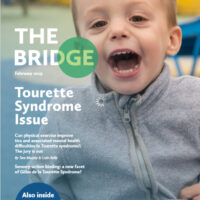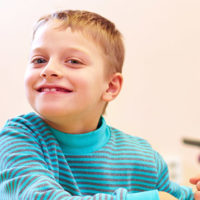Search results
-
Recommended
Sleep
Children and adolescents who are experiencing difficulties with their mental health also often struggle with their sleep. Indeed disrupted or altered sleep has been associated with most psychiatric disorders (Gregory & Sadeh, 2016). Although a range of sleep difficulties can co-occur with mental health problems, a common difficulty is insomnia. As such this guidance will primarily focus on difficulties with getting to sleep and staying asleep.
Read more -

Tourette Syndrome edition
Welcome to the February 2019 edition of The Bridge. The focus of this edition is Tourette Syndrome, a condition, which has much stigma attached, stereotyped views by society about what it means and a lack of national clinical guidance.
Read more -

Tourette Syndrome edition
Welcome to the February 2019 edition of The Bridge. The focus of this edition is Tourette Syndrome, a condition, which has much stigma attached, stereotyped views by society about what it means and a lack of national clinical guidance.
Read more -

ADHD Masterclass
“Excellent speakers, very interesting, thoroughly evidence-based and engaging” Previous delegate Learning outcomes and key takeaways Consider whether therapeutic intervention for ADHD depends on scientific progress Understand the role of genetic and environmental factors in the aetiology of ADHD, and the implications for treatment Recognise that ADHD is a neuro-biologically heterogeneous condition, and ask whether it is […]
- Event type
- Masterclass
- Location
- London
-

ADHD Masterclass
Learning outcomes and key takeaways Consider whether therapeutic intervention for ADHD depends on scientific progress Understand the role of genetic and environmental factors in the aetiology of ADHD, and the implications for treatment Recognise that ADHD is a neuro-biologically heterogeneous condition, and ask whether it is important to tailor treatments to address different causal profiles […]
- Event type
- Masterclass
- Location
- London
-

Research issues for children, young people and adults with learning disability and/or autism and their families – some personal reflections
One of the most positive experiences I have ever had was being part of the Childhood Disability Research Priority Setting Partnership through the British Academy of Childhood Disability, the James Lind Alliance and others.
Read more -

Understanding and working with Tourette Syndrome
In order to view this content, you need to be an ACAMH member. Membership starts from just 11p a day. We hope you consider joining and being part of the advancement of child and adolescent mental health.Read moreCurrent members will need to be registered as a website user and log in, our guide to this simple process can be accessed here.
-

Clinical characteristics of adolescents referred for treatment of depressive disorders
Low mood and depression often emerge during adolescence and are associated with long-term difficulties including increased risk of developing other mental health disorders, educational underachievement, low income/unemployment, and risk of suicidal behaviour.
Read more -

Jack Tizard Memorial Lecture and Conference 2018 – Intellectual Disabilities and Autism
In order to view this content, you need to be an ACAMH member. Membership starts from just 11p a day. We hope you consider joining and being part of the advancement of child and adolescent mental health.Read moreCurrent members will need to be registered as a website user and log in, our guide to this simple process can be accessed here.
-

ASD and Mental Health Masterclass
This full day training is the equivalent of 6 hours CPD, and is suitable for those who have an advanced knowledge of the treatment and management of children and young people with an ASD diagnosis. Mental health problems commonly co-occur with ASD, yet these problems often go untreated. This Masterclass offers both clinicians and researchers […]
- Event type
- Masterclass
- Location
- Dublin
-

What is an intellectual disability?
This alphabetical framework is designed as an aide memoire for the identification of an ID (in children, young people or adults). It will help you identify available information sources and gaps in knowledge about an individual’s ability. It will guide you in decision making regarding a likely diagnosis and help you generate a needs based plan.
Read more